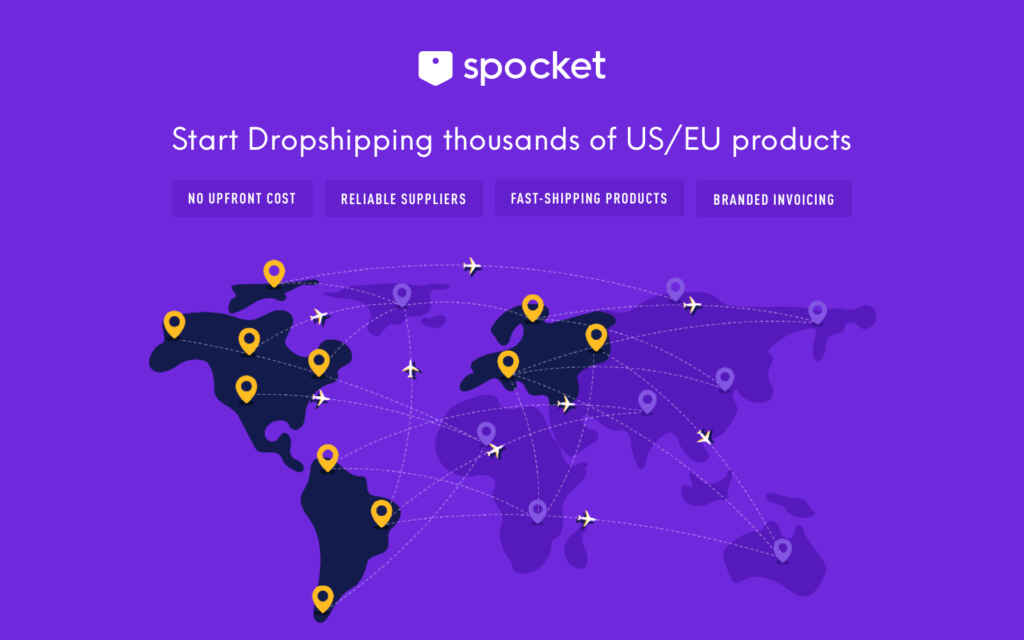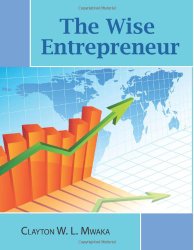
Hello – apologies for the late post for this week – but let’s consider the below today.
By the way, does the word ‘strange’ sound strange to you when it comes to entrepreneurship and entrepreneurs?
Well, the entrepreneurship world is filled with various things that appear very strange or queer for that matter. These are issues and also viewpoints that are rather bizarre or unusual – I mean weird and untypical.
There is even a wacky story about Seth Priebatsch, the guy who founded and transformed SCVNGR into a mobile payment platform called TheLevelUp.
The ‘Chief Ninja’ as he used to call himself, was reputed for walking barefooted in office often, wearing a bright orange shirt every day, and opting to sleep severally in the office rather than go home from work.
This is another level of strangeness. Quite interesting indeed!
Below, I have documented for you 15 strange (queer and bizarre) lessons from renown and successful global entrepreneurs.
Perhaps we can learn some valuable things from these weird lessons.
1. Don’t spend money on advertising (Elon Musk – Tesla). I believe you know that advertisements (ads), in whatever form they are, literally rule the world. Don’t you?
In fact, big companies spend quite a significant portion of their annual operational budgets in ads. It is reported that the global advertising market was valued at $647 billion as at 2020, though Forbes even places it higher at circa $1.7 trillion in an earlier article.
Putting aside arguments about the numbers and reasons for the huge variance, one would be crazy to ignore the value of ads.
When Elon Musk advices companies not to spend money on ads then you can imagine something might not be adding up. Who is correct? Musk or the rest? Don’t you agree?
Musk says that Tesla spends on design, engineering, R&D, manufacturing etc. to come up with the best car, instead of spending money on advertisement.
The question then is, how has Tesla performed without wasting money on ads? Let me get your comments.
Can entrepreneurs build powerful and successful businesses of the likes of Tesla without huge ads expenditures?
Isn’t this queer?
2. Done is better than perfect (Mark Zuckerberg – Facebook). Then comes Mark Zuckerberg. According to CNBC, the phrase “Done is better than perfect” is painted on the inner walls as a social mantra at Facebook’s Head office.
This guy Mark emphasizes that entrepreneurs should just produce prototypes and test them quickly (to check what works and what does not work and quickly improve if required), instead of spending ages arguing about possibilities and how best to do something.
Now, tell me! How does this contrast with some entrepreneurs who take annoyingly long periods perfecting products?
Get it right. This is not to part ways with perfection. Probably Steve Jobs would knock you back to your senses with his crave for perfection. You can read my earlier article entitled Critical Lessons from Steve Jobs That Every Entrepreneur Must Know – Part 1 in regard to Steve’s perfectionism.
Rather, the idea is that perfection comes over time but should not be a hindrance to an entrepreneur at an early stage. Got it?
With this approach, Facebook continues to test boundaries and improve with time. Is there any creature who will contest Facebook’s tremendous success today?
Of course, this is not an entitlement to go with some dumb unfinished product that will make buyers chase you with a stick or call you unprintable names!
You need to be smart.
3. Seek criticism (Elon Musk – Tesla). Again, referring to Elon Musk, another strange lesson is for an entrepreneur to gravitate towards criticism.
Candidly, not many people like this – and some could even blow up with constant criticism.
Elon Musk reported that whenever he discussed Tesla vehicles with anyone, he principally wanted to know what was wrong with the vehicle and not what was good.
The wisdom here is that criticism arising from your failures are your pain points, and also learning points.
Are you an entrepreneur who can follow this approach? If you can, that’s good.
4. Tell stories (Sir Richard Branson – Virgin Group). Yes – nice and valuable stories about your company, products and services etc. are a good approach to marketing.
The best marketers know that people buy stories and relationships and not products or services. Seth Godin a renown global marketing expert confirms this point through his marketing books.

I recommended some books by Seth God in my earlier article about brilliant entrepreneurship lessons – great teachings from very successful entrepreneurs.
Mr. Entrepreneur, the strange entrepreneurship lesson here is this: don’t talk too much about your product features, affordability, availability etc. Do you understand?
Try and focus more on stories and relationships to sell more.
This is indeed queer because most marketers in companies focus on issues that are not very important in light of this great idea.
I guess I’ve already given you enough references above, so don’t complain. In case you still need another reference, you can read about this great story idea here.
5. Don’t fit-in and don’t be a right- or left-brain thinker, because it’s better to be both (Steve Jobs – Apple).
Many successful entrepreneurs are reputed to be misfits. This is another strange lesson – because there is this notion that you cannot succeed if you don’t blend and flow with people.
Many writings about how to win people do not encourage the misfit syndrome.
Steve Jobs was a misfit and also operated at the intersection of science and art. The left side of the brain is the logical thinking side while the right side is the creative and artistic side. I guess you already know this anyway.
You can confirm this left and right side of the brain functions by the way.
There you are – my dear entrepreneur.
6. Never run with the herd – buy when everyone else is selling (be greedy), and sell when everyone else is buying (Warren Buffet – Berkshire Hathaway). The man from Omaha, as Warren Buffet is often referred to, gives us another strange entrepreneurship lesson.
Never follow the majority when making business decisions.
In my opinion, this is very good for copy-cat entrepreneurs who comically follow what the rest are doing. Some even sneeze when others are sneezing. Some can be so pathetic in copying.
When you lack originality as an entrepreneur then I guess you need to look for another career. Creativity and innovation are cornerstones of successful entrepreneurs.
The crowd is usually wrong and this is why Warren advises that you should buy stocks when everyone else is selling (be greedy), and sell when everyone else is buying (be fearful).
In short – Warren is saying buy when the blood is running in the streets.
This contrarian approach goes beyond buying and selling a business.
Now, this is rather weird and untypical. Don’t you think so?
7. Give the smart phone a rest (Sir Richard Branson – Virgin Group). It is reported that Sir Richard Branson is not a fan of the smart phone.
Honestly! I know many folks are going to be up in arms against this notion. You could be easily branded ‘old school’ when you follow this approach in today’s dot.com world.
There are people today (entrepreneurs and non-entrepreneurs) that start and end their day with a smart phone. In fact, there are those who even sleep with the phone in their hands – just waking up in the middle of the night to put it away. What a world?

I’m not lying. I’m speaking the plain truth.
So – allergy to a smart phone is another very strange entrepreneurship lesson, from a very successful entrepreneur like Richard Branson.
Do you have an idea about the number of successful companies Richard Branson has? Just take a look at some of these.
If putting aside the smart phone is one of the clues to such success, I believe many folks would be easily convinced to part with their phones.
Another strangeness.
8. Never care about reality but go with your gut feeling (Steve Jobs – Apple). Permit me to quote Steve Jobs here again – and please don’t get tired of this. Ok?
There is thing about logical, data-backed, analytical and reasoned thinking, whatever name you give it – that you always hear and see on the walls of corporate entities.
In fact, you could earn yourself a problem as an executive if you appeared to be making decisions not backed by adequate information and analysis.
This is the very reason why Steve Jobs’ lesson to entrepreneurs, not to care about reality but rather focus on gut feeling, is indeed strange and bizarre.
Steve Jobs could sometimes compel his engineers to get towards impossibility while designing products. I mean – things that defy logic and reality.
According to an article by Business Insider, psychologists insist that our guts are smarter than what we think.
Harvard Business Review also writes about situations when you can rely on your gut feelings to make vital decisions.
Do you think Steve was not smart enough? Think twice!
9. Focus on and learn from your most unhappy customers (Bill Gates – Microsoft). Here comes Bill Gates again.
Your most unhappy or most annoyed customers or clients are the best for you to learn from. Got it?
Yes – that is true. Again, another unusual and untypical lesson from a very successful entrepreneur.
You have got to learn from your most unhappy customers. I think I agree with Bill Gates that this is a smart move. This also tends to agree with one principle in the art of war: keep your enemies near you.
Quite unexpected and unfamiliar. Not so? Come on!
10. Never overlook small expenses (Warren Buffet – Berkshire Hathaway). Now, a major principle used in cost management is that you should focus first on the big cost elements.
This is a good idea, but Warren also warns us not to overlook small expenses.
The thing is that small expenses also pile up with time, and before you know it you are dealing with another big item. This is how things work. They start with being small and then translate into big problems.
On the same note – saving on small expenses also add up to something significant over time.
As an entrepreneur, please stop taking small expenses or things for granted. Are you getting the idea well? Even a small customer complain could translate to something bigger and many dissatisfied customers.
There is a rule that one unhappy customer means 250 unhappy ones.
Yet another queer lesson.
11. Be obsessed with your customers and not your competitors (Jeff Bezos – Amazon). In the business world we talk about competitive analysis, competitive strategy and tactics blah blah blah.
Might not be a bad idea but when you put too much focus on it to the extent that it clouds and overrides your attention to your customers then you pay a high price for it.
This is the reason why Jeff Bezos advised entrepreneurs to focus less on their competitors but rather be obsessed with the customers.
Customers put money in your pocket. Competitors don’t. This must be the clue.
Strange but I agree entirely with Jeff.
Wasting time to wait and see what your competitors do and then you try to copy them is useless. Being customer focused is much more valuable than being competitor focused.
12. Don’t make the same decision twice (Bill Gates – Microsoft). Another strange or queer entrepreneurship lessons from a successful entrepreneur is that you should not go back on your business decisions.
What Gates is saying is simply this – make the best decision so that you don’t need to pivot or make a U-turn, and this saves precious time and avoids causing disruptions to your business. Period!
I guess you know the cost of zig-zagging in decisions. If you find an entrepreneur or business executive that likes zigzagging then you better run before its late.
13. Don’t wait for society to be ready, and don’t learn to be successful (Jack Ma – Alibaba). Here comes Jack Ma of Alibaba.
I want to try and be balanced globally in my examples and lessons. Ok? In this way you cannot accuse me of bias.
I’m simply spreading the good news and wisdom about entrepreneurship so that folks build great and lasting enterprises that add real value to humanity.
Jack says that there is no value you can create if everything is ready. Brilliant idea. Not so?
So, you don’t need to wait until someone tells you they need pizza before you open up a pizza joint.
Jack didn’t wait to see the high demand on ecommerce and digital payment before he started Alibaba.
Think ahead.
14. Do more and talk less (Mukesh Ambani – Reliance Industries Ltd). Most successful entrepreneurs like being the talk of town – attending important meetings, social gatherings, appearing on newsletter front pages, conducting endless press interviews etc.
That is the norm. So, the strange lesson is that a successful entrepreneur should try and keep an annoyingly very low profile, with very limited media exposures, no opinions on important economic issues etc.
Mukesh Ambani’s do more less talk philosophy is a strange lesson for entrepreneurs. Don’t you think there is quite a bit to learn from this?
Let’s proceed to our final shot for the day.
15. Bite off more than you can chew (Bill Gates – Microsoft). Usually we hear this: Don’t overdo it. You might fail when you stretch. Watch your steps and growth plans. Only take on what you can manage. These are common pessimistic ideas you will always hear as an entrepreneur.
Gates instead advises that you should push yourself to do more than you have ever achieved.
This of course is not a license for recklessness.
Yet another strange lesson from a very successful entrepreneur.
Sure – it has been quite a long article. These are indeed oddities – alien and peculiar entrepreneurship lessons from successful entrepreneurs. Not so? The choice is yours to implement what you like, or simply ignore them.
Please follow us on Twitter if you like this article – and spread the news about this blog.
With every good wish.
Till then,
The Wise Entrepreneur
NB. Images Courtesy of:
- Brett Jordan on Unsplash
- SOCIAL.CUT on Unsplash
- Louis Hansel on Unsplash















